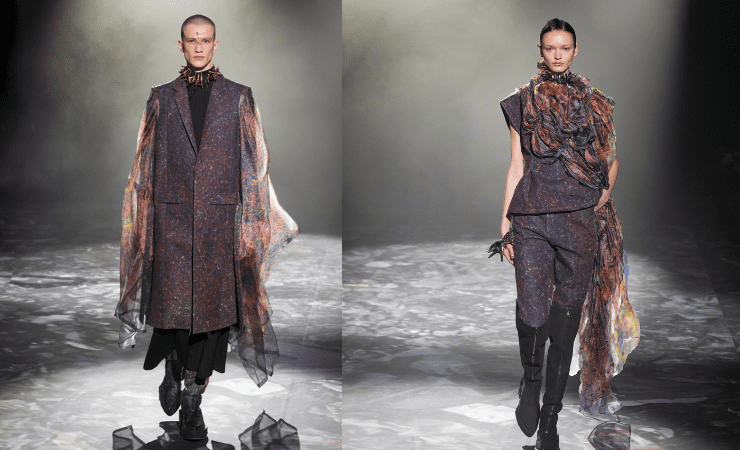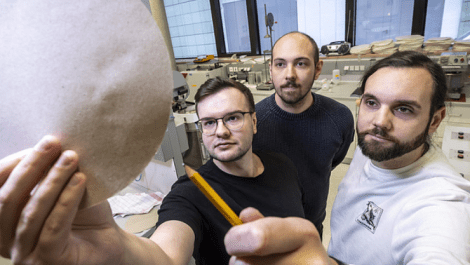Epson has partnered with Japanese fashion designer Yuima Nakazato and his eponymous brand at Paris Haute Couture Fashion Week to unveil creations that are ‘both stunning and sustainable’.
Epson’s dry fibre technology, which is already used commercially to recycle office paper and which requires virtually no water, has been adapted to produce printable non-woven fabric from used garments.
The new fabric production process was revealed in Paris as part of a three-year collaboration between Epson and Yuima Nakazato and was used in the creation of items for the first time during the latter’s runway show at the Palais de Tokyo.
Both Epson and the fashion designer are keen to raise awareness of the water and material waste associated with excess production. The Paris Show illustrates how switching to digital textile printing using more environmentally friendly pigment inks offers the fashion industry a more sustainable and less wasteful means of textile printing.
The fabric taken to create the latest fashion line was derived from material from used garments sourced from Africa, the destination for many discarded garments from elsewhere in the world. Mr Nakazato visited Kenya where he collected around 150kg of waste garment material destined for the ‘clothes mountain’ of discarded textiles he encountered there.
Epson then applied its dry fibre process to produce over 50m of new re-fiberised non-woven fabric, some of which was used for printing with pigment inks with Epson’s Monna Lisa digital printing technology.
Hitoshi Igarashi, of Epson’s Printing Solutions Division, said, ‘Although in its early stages, Epson believes its dry fibre technology combined with pigment ink digital printing could offer the fashion industry a much more sustainable future, significantly reducing water use while allowing designers the freedom to fully express their creativity.’


